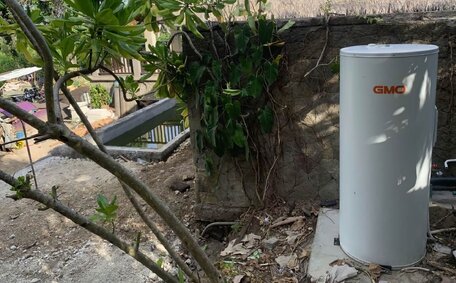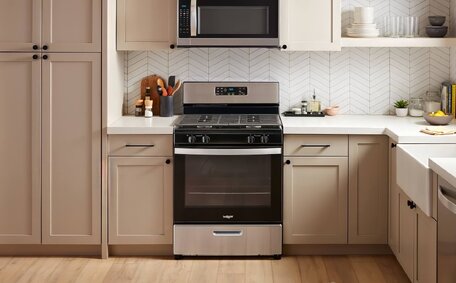
Financial Benefits of Natural Gas
Natural gas offers many financial perks over other energy sources. It burns cleaner and costs less than alternatives, helping lower monthly bills.
Read MoreUnexpected plumbing emergencies present challenges for both tenants and landlords in rental properties. Burst pipes, blocked drains, and faulty hot water systems need swift resolution to prevent further property damage or health hazards.
Responsibilities for finance and coordination of emergency plumbing repairs hinge on the problem’s nature, severity, and the tenancy contract terms.
A clear grasp of obligations can prevent disputes during the stressful times of a plumbing crisis. Understanding responsibilities helps tenants avoid eviction risks and landlords manage insurance and vacancies effectively. This article outlines the delineation of duties, identifies emergency repairs, and offers best practices for managing common plumbing issues, underlining the significance of recognising one’s own responsibilities.
When plumbing issues arise in rental properties, determining if it is an emergency versus standard repair guides the response. Under residential tenancy laws:
The distinction between emergency and routine repairs influences response urgency and financial responsibility. Occupants should acquaint themselves with the urgent repair protocols specified in their tenancy agreements and local consumer affairs rental guidelines.
As the property owner, landlords have overarching obligations under residential tenancy laws to provide and maintain safe, functioning plumbing infrastructure. This includes maintaining pipes, drains, taps, toilets, water heaters, and other critical systems.
Structural aspects like damaged pipes and core plumbing are where the landlord responsible steps in. Tenancy agreements mandate landlords to promptly address and repair faults, with a special emphasis on emergencies. Situations demanding an immediate response from landlords include:
In some states, laws mandate notice before a landlord enters for nonurgent repairs. However, in urgent situations that demand immediate inspection and repairs, landlords are to ensure swift access without prior notice. All responsibilities should be detailed in the Residential Tenancy Agreement.
Tenants are obliged to care for the property and report issues promptly to prevent damage, as per residential tenancy legislation. Proper use of a property’s plumbing, careful prevention of blockages, and prompt reporting of issues to the landlord minimise damage.
Tenants are responsible for prudent use, such as:
Adhering to 'What Not To Flush’ guidelines prevents blockages caused by inappropriate items like wet wipes, cotton buds, and sanitary products. Tenants who intentionally damage or negligently cause issues by flushing inappropriate things may find that repairs can become their financial responsibility.
Proactive measures improve liveability and reduce the likelihood of plumbing issues. Comprehending and fulfilling one’s plumbing duties fosters positive relationships between tenants and landlords.
The question of who covers the cost of urgent plumbing repairs depends on the cause, property condition, and tenancy agreement stipulations.
If tenant damage or negligence spur the emergency, such as flushed items blocking drains or sinks, the tenant must typically cover costs. But if aged pipes burst or fixtures fail unexpectedly, the landlord usually bears responsibility.
Tenancy agreements clearly lay out responsibilities, helping both parties understand their roles. It should clearly define reportable urgent repairs like burst pipes alongside tenant usage obligations and associated liability for repair costs from misuse. Resolving disputes falls to consumer affairs departments.
A contingency fund aids both parties in handling unexpected repair costs, reducing the likelihood of disputes. Landlords can earmark funds for emergencies without excess vacancy losses. Tenants gain a buffer for sudden costs without rental arrears.
Effective communication between parties is crucial for the prompt resolution of crises. Understanding obligations around emergency plumbing issues makes tenants feel empowered requesting repairs while landlords feel supported maintaining properties.
In a plumbing emergency, tenants should follow these critical steps, contacting local officials when necessary:
Following these steps helps efficiently resolve crises whilst clearly communicating tenant obligations and rights to landlords. Cooperation and clarity ensure emergency situations are resolved quickly, preventing disagreements over liability.
Residential tenancy laws and regulations govern rental properties and associated emergency repair duties in Australia. The overarching framework encompasses:
Residential tenancy legislation requires both parties to be knowledgeable about plumbing infrastructure responsibilities, especially for urgent repairs. The signed lease formally codifies these obligations for maintenance, usage, costs and response times.
Tenancy agreements should transparently outline reportable emergency incidents needing immediate repair alongside expected rectification timeframes. Usual inclusions cover burst pipes, sewage overflows, serious water leaks and faulty hot water units.
Likewise, details on non-urgent issues, usage standards expected of tenants and associated liability for negligent damages should feature. Having unambiguous expectations around emergency plumbing incidents minimises disputes when crises arise.
Ultimately these lawful protections balance tenant safety and wellbeing with landlord rights and risk management. But open dialogue, cooperation and good record keeping also help resolve issues fairly if discrepancies around urgent plumbing repairs ever eventuate.
Adopting preventive maintenance habits safeguards rental properties from typical plumbing emergencies, providing tenants with uninterrupted comfort and saving landlords on repair costs.
Tenants are advised to take consistent precautions such as:
Landlords should prioritise protective measures such as:
While some failures are unpredictable, these proactive habits lower the potential for emergencies. Early intervention at the first signs of a problem can often mitigate the impact of emergencies. Joint efforts in tenant diligence and landlord upkeep contribute to the optimal functioning of rental properties.
Natural gas offers many financial perks over other energy sources. It burns cleaner and costs less than alternatives, helping lower monthly bills.
Read MoreChoosing the correct hot water system size involves considering factors like number of household members, number of bathrooms, peak usage times and daily hot water needs per person. Our guide helps determine the right system capacity.
Read MoreHaving trouble with your gas water heater not heating properly? The pilot light may have gone out. Follow our clear guide on relighting your gas water heater’s pilot light in 6 easy steps. Or call the friendly experts at Balmain Plumbing if you need assistance relighting your pilot.
Read MoreBalmain, 2041 NSW
We will call back as soon as possible.




